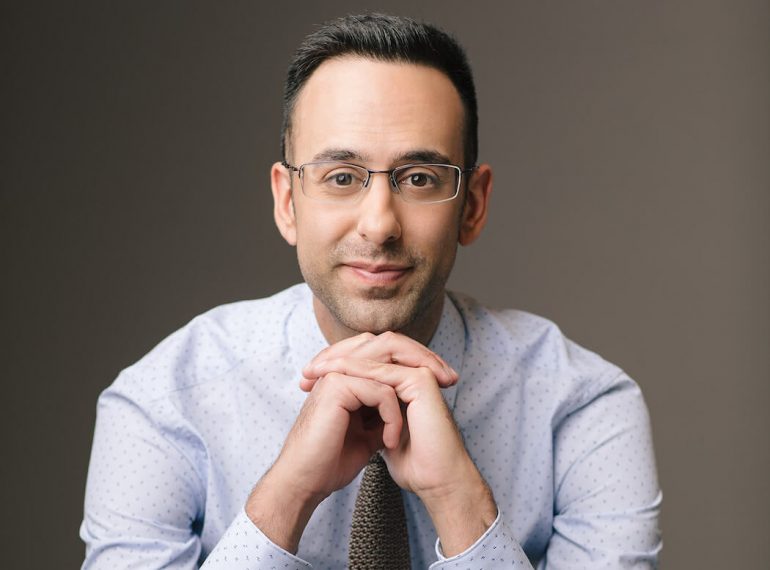Mikra Cellular Sciences hasn’t even released its first product, and it already claims a waitlist of more than 40,000 customers. The bioscience startup claims its orally ingested gel will increase cellular performance, and improve individuals’ “healthspans.”
Mikra secured $8.5 million CAD in funding from its parent company, Lifeist Wellness Inc. in early March. The money will go towards marketing, product development, and towards supporting pre-clinical genomics trials.
“I really do want open-source preventative healthcare.”
-Faraaz Jamal, Mikra
Mikra describes Cellf, as the oral gel is called, as an intensive super blend formula that is designed to help boost energy and mental focus on a cellular level. With its first product, the bioscience startup is targeting consumers who are 30-plus years of age and who are beginning to notice that their biological age is impacting their everyday performance.
The biosciences startup claims that Cellf works at a cellular level to help combat systemic fatigue, inflammation, and brain fog by promoting the creation of mitochondria, increasing their efficiency and removing the buildup of older, dysfunctional cells.
Faraaz Jamal, founder and CEO of Mikra, admitted that the size of the waitlist surprised him.
“It kind of caught me off guard a little bit,” Jamal said. “The art director and social media director got together and decided to play around with some of the stuff we were talking about, about cellular potential, and being able to hack your cellular function a little bit, and it kind of blew up on us and started getting a little traction.”
Jamal’s current focus is launching Cellf in the United States, where he told BetaKit that the American Food and Drug Administration (FDA) “generally recognizes it as safe.” The FDA says that in order for a nutraceutical – which is how Jamal classifies Cellf – to avoid the agency’s strict drug approval process, “nutraceuticals must maintain that they are not intended to treat, diagnose, prevent, or cure diseases. So, no label claims about treating pain, or preventing cancer.”
Mikra claims Cellf is keeping within FDA guidelines as it is designed to help inhibit C-reactive protein, a clinical marker of the inflammatory response.
As well, the startup’s preclinical and clinical roadmap is designed to create the data set containing clinical guidance to submit Cellf for FDA approval for preventative measures that are required for this type of product.
Closer to home, Jamal said Mikra has submitted Cellf for Health Canada approval.
“It’s more akin to cellular medicine than it is your normal fruit gummy or anything of the sort,” Jamal explained.
Mikra currently has a patent pending on Cellf’s formulation and is currently conducting genomic pre-clinical trials to demonstrate the efficacy of the product at a genetic level with InVivo Biosystems. The preliminary data from that trial should come back in May, and then be completed in November. An iterative trial will follow.
“We’re kicking off the genomics trial as an additional trial just to understand how to continuously innovate on the product,” Jamal said. “Mikra is all about continuous improvement within the nutraceutical space. We’re never going to stick with a version for more than a year.”
Getting a new nutraceutical to market isn’t without its challenges. Jamal asserted that the majority of people currently don’t trust nutraceutical companies. “That’s a fundamental problem we’re trying to surmount, but also one of the ones I’m really passionate about,” he said.
Jamal said one of Mikra’s core values is that health is a fundamental right. But he claimed nutraceutical companies are still pushing out what he called the same old multivitamins, and “fairy dust.” According to Jamal, Mikra will continuously innovate, and he compared the startup’s approach closer to a pharmaceutical or software firm.
RELATED: Cyclica spins out startup, Perturba Therapeutics, from University of Toronto
“It’s very easy for companies to spin up like a nutraceutical company and just white label things,” Jamal said, referring to the practice of firms rebranding products made by other companies. “We’re trying to do things a lot more differently, a fully traceable supply chain, proper third party lab testing as well as potency testing. These are all regulatory hurdles that we’re almost self-imposing on ourselves just to bring the industry to a higher standard.”
Mikra began in 2020 as a fully owned subsidiary of Lifeist. The latter is a portfolio company that incubates and builds healthtech startups, according to Jamal. He said he proved out Mikra’s technology and potential, and created a detailed roadmap for research and development, and pre-clinical and clinical trials.
On a more personal level, Jamal said, “I drew a few bad health and genetic cards when I was younger.” He was diagnosed with Marfan’s Syndrome – a genetic condition that affects connective tissue, and non-Hodgkin’s lymphoma. As well, he has chronic pain, a result of all the radiation and chemo treatments.
“Not super ideal,” Jamal said. “It shaped everything Mikra will become. It just took a little while to get the expertise, the right team, the technology, and the funding to manifest.”
One of the things Jamal wants to do with Mikra is make all the intellectual property from the product’s clinical trials open source. “I really do want open-source preventative healthcare,” he said. “Fifteen years ago when I was diagnosed … I just wanted to be able to live normally, and I was so confused as to what was happening on a genetic level to me. So this will allow people who are undergoing the same issues right now to take control of their own health.”
Jamal added: “This is the future. The future of your health is going to be your cellular pathways.”


